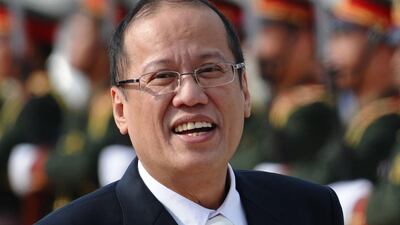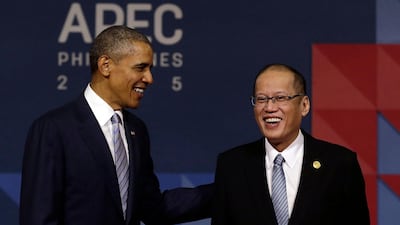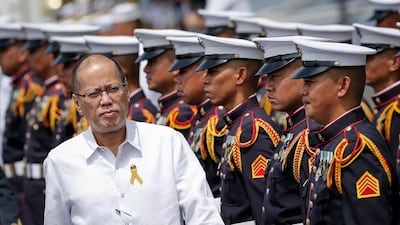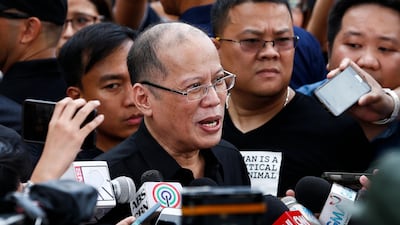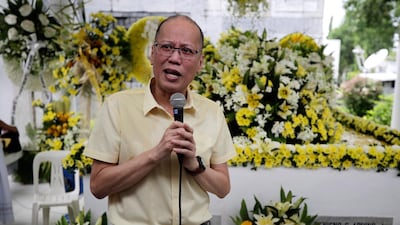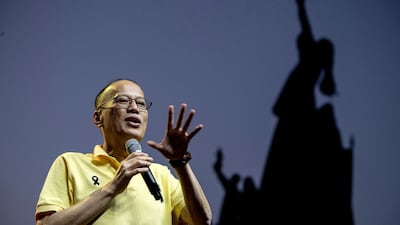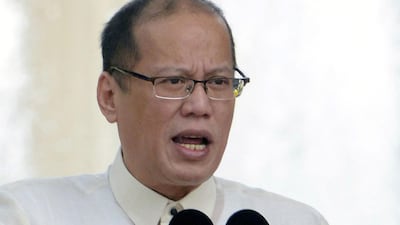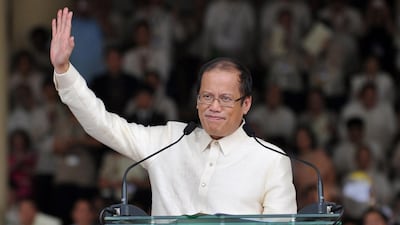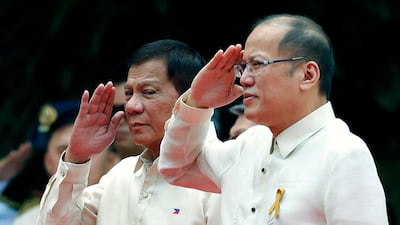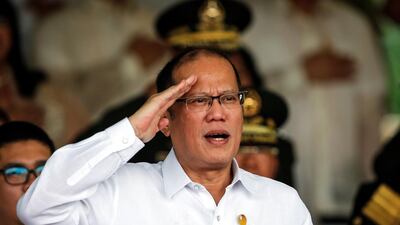The former Philippine president, Benigno "Noynoy" Aquino III, who came from one of the country's most prominent pro-democracy political families, has died in Manila.
He passed away of heart failure at a hospital in Quezon City.
Aquino, who was president from 2010 to 2016, was a bachelor with a fondness for cigarettes and computer games who spent much of his life in the shadow of his parents.
He was the only son of the late former president Corazon Aquino and her assassinated husband, senator Benigno "Ninoy" Aquino, both revered for leading the struggle to restore democracy in the archipelago nation.
The former president had said he did not aspire to lead the nation.
His father, who was an opposition leader, was jailed by the regime of Ferdinand Marcos and assassinated in 1983 on his return from exile in the US.
Three years later, his mother ran against Marcos in a snap election that resulted in the dictator being removed from power.
The 2009 death of Corazon, the nation’s first female president, prompted calls for Aquino, then a senator, to run for the top post the following year.
“I didn’t have any ambition to be president,” he said in a 2013 interview with Bloomberg News. “It was fate. The people found me.”
Aquino was born on February 8, 1960, the only son among five children.
An economics graduate from the Ateneo de Manila University, he served as a congressman and senator. Before his political career, he worked as retail supervisor and promotions manager at Nike’s Philippine unit.
Economic boom
During Aquino’s six-year presidential term, the nation’s economy grew an average of 6.2 per cent and twice exceeded 7 per cent, the fastest pace since the 1970s.
His administration pursued tax evaders, narrowed the budget deficit from a record level, and enabled the Philippines to clinch its first investment-grade score from a major credit rating company.
He brought China before a UN-backed tribunal in March 2014 to challenge Beijing’s push for control of the South China Sea, portions of which the Philippines claims. Aquino initiated the proceedings after a stand-off between vessels from the two countries in the disputed Scarborough Shoal in April 2012.
After Aquino left office, the Permanent Court of Arbitration in 2016 ruled in favour of the Philippines, saying China’s territorial claims in the South China Sea breached international law – a decision Beijing has rejected.
Rodrigo Duterte, Aquino’s successor, has resisted raising the ruling while pushing the country towards China and away from the US, which has had a mutual defence treaty with the Philippines since the 1950s.
Aquino’s predecessor, Gloria Arroyo, was jailed on corruption charges during his term.
The country’s ranking on Berlin-based Transparency International’s Corruption Index improved 11 places in his last full year in office in 2015 from six years earlier.
His administration was criticised, however, for not spending enough to improve the country's infrastructure. Traffic jams that led to lengthy commuter journeys triggered public disenchantment, which Mr Duterte capitalised on during the campaign to succeed him.
